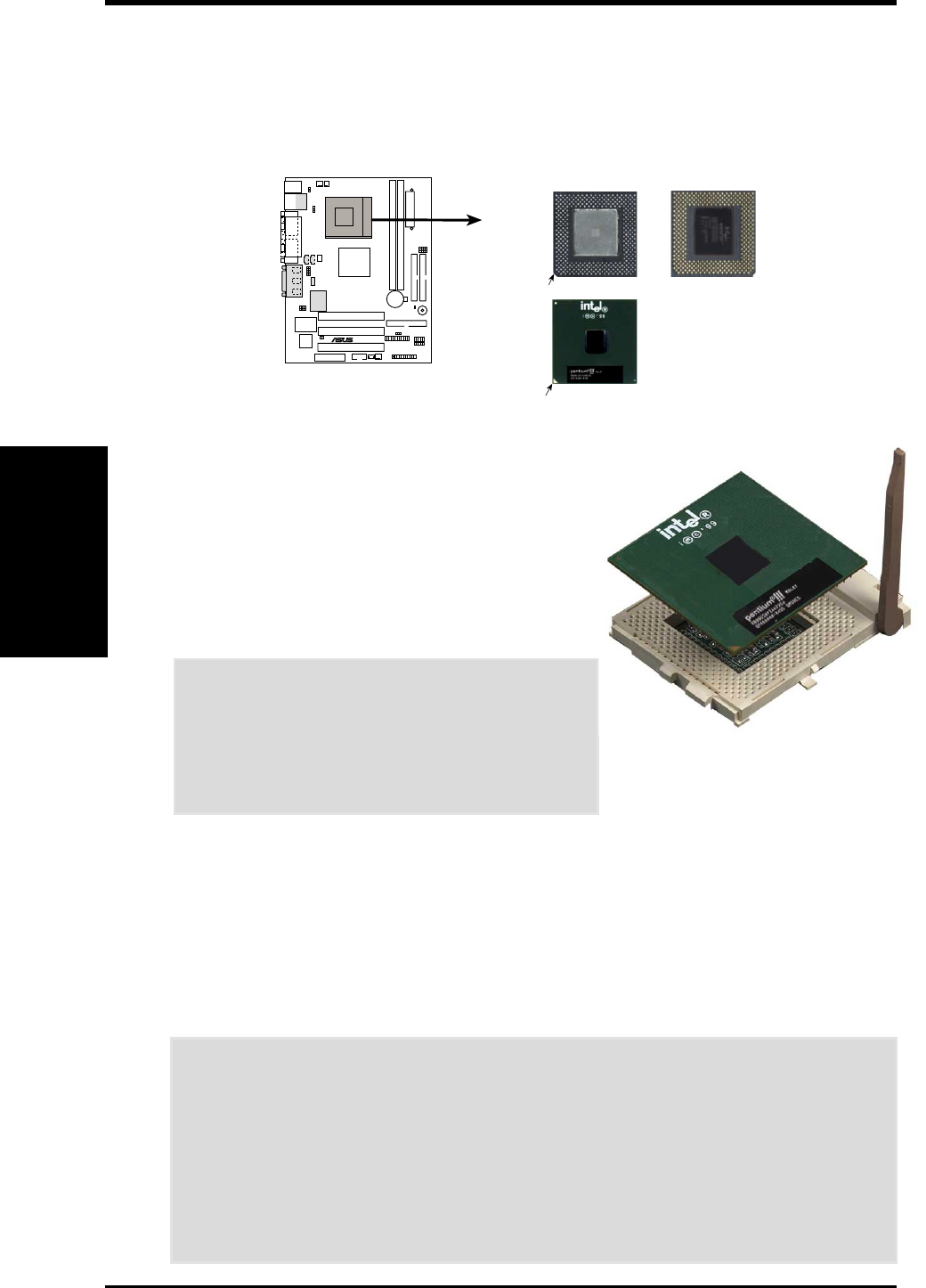
22 ASUS TUSI-M User’s Manual
3. HARDWARE SETUP
CPU
3. H/W SETUP
3.6 Central Processing Unit (CPU)
The motherboard provides a ZIF Socket 370, for CPU installation. A fan and heat-
sink should be attached to the CPU to prevent overheating. Purchase and install a
fan and heatsink before turning on the system.
TUSI-M
®
01
TUSI-M Socket 370
Socket 370 CPU
(Top)
Socket 370 CPU
(Bottom)
Notch
Celeron
Gold Arrow
Pentium III
1. Locate the Socket 370 and open it by pulling
the lever gently sideways away from the socket.
Then lift the lever upwards. The socket lever
must be fully opened (90 to 100 degrees).
2. Insert the CPU with the correct orientation. The
gold arrow of the CPU must be oriented
toward the outer corner of the socket base
nearest to the tip of the lever handle.
CAUTION! The CPU fits in one orientation
and should drop easily into place. Do not force
the CPU into the socket to avoid bending the
pins. If the CPU does not fit, check its
alignment and look for bent pins.
3. Once completely inserted, press the CPU firmly and close the socket lever until it
snaps into its locked position.
4. Install an Intel fan heatsink. The heatsink should entirely cover the CPU. Care-
fully attach the heatsink locking brace to the plastic clips on the socket base. With
the added weight of the CPU fan and heatsink locking brace, no extra force is
required to keep the CPU in place. Connect the CPU fan cable to the fan connec-
tor (See 3.1 Motherboard Layout / 3.8 Connectors).
CAUTION! Take care not to scrape the motherboard surface when mounting a
clamp-style processor fan, or else damage may occur. When mounting a heatsink
onto your CPU, make sure that exposed CPU capacitors do not touch the
heatsink, or else damage may occur! Refer to heatsink/CPU documentation.
NOTE: Do not forget to set the correct Bus Frequency and Multiple (frequency
multiple setting is available only on unlocked processors) for your Socket 370
processor or else boot-up may not be possible. Socket 370 processors provide
internal thermal sensing: a socket mounted thermal resistor is not needed.


















